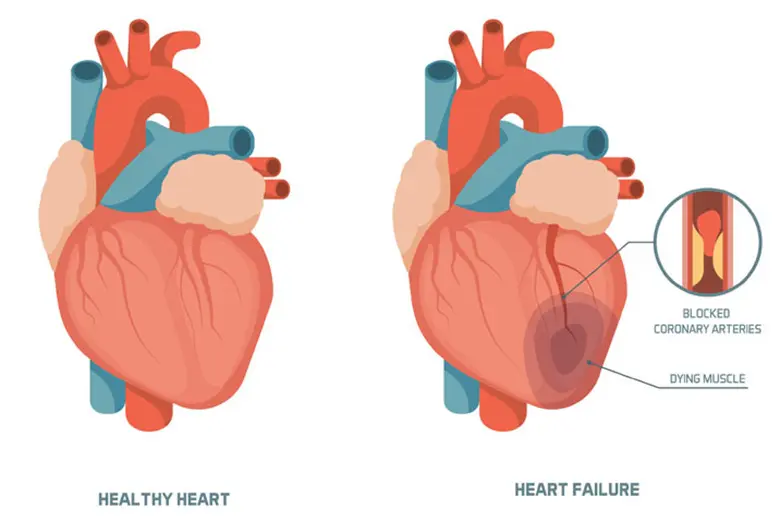Heart Failure
What is heart failure?
Heart failure is a condition in which the heart is unable to pump an adequate supply of blood to the body’s tissues. It is also known as:
- Congestive heart failure
- Congestive cardiac failure
Heart failure deprives the main body organs and tissues of oxygen and nutrients. As a result, the organs and tissues may not function properly. This can also lead to oedema, which is the build-up of fluids in the tissues.
Types of heart failure
There are different types of heart failure:
- Left-sided heart failure, in which fluid may back up in the lungs and cause shortness of breath.
- Right-sided heart failure, in which fluid may back up into your abdomen, legs and feet, causing swelling.
- Systolic heart failure, which results when the left ventricle is unable to contract sufficiently.
- Diastolic heart failure, which results when the left ventricle is unable to relax or fill fully.
Heart failure is a chronic condition with serious consequences. It affects your general well-being, including your mental, physical, and social status. The prevalence of heart failure increases with age.
Although there is no cure for heart failure, a combination of lifestyle changes, medications and sometimes surgery can help to manage and treat this condition.
What are the symptoms of heart failure?
If you are suffering from heart failure, you may experience any of the following symptoms:
- Chest pain (angina)
- Fainting and dizziness due to inadequate blood and oxygen supply to organs and muscles
- Fatigue due to inadequate blood and oxygen supply to organs and muscles
- Shortness of breath resulting from fluid build-up in the lungs
- Swollen feet, ankles and legs resulting from fluid build-up in the veins and body tissues
- Weight gain due to fluid excess in the body
- Weight loss
Note: Heart failure is a serious condition that may also lead to sudden death.
When to visit the UCC?
If you experience any of the following symptoms, visit the Urgent Care Centre (UCC) immediately:
- Fainting
- Chest pain
- Severe weakness
- Rapid or irregular heartbeat accompanied by shortness of breath, chest pain or fainting
- Sudden, severe shortness of breath with coughing up of pink, foamy mucous
What causes heart failure?
Heart failure can be caused by heart disease and other conditions that affect the heart’s ability to pump blood effectively. Common causes include:
- Cardiomyopathy, a disease that causes the heart muscle to weaken. Coronary heart disease and other heart diseases can lead to cardiomyopathy.
- Coronary heart disease, which is the hardening of arteries supplying blood to the heart due to the build-up of fatty deposits in the walls of the arteries. This restricts the heart’s ability to pump blood. It is one of the most common causes of heart failure.
- Defects of the heart valves, and congenital heart disease (heart defects present at birth).
- High blood pressure, which causes the heart to work harder to supply blood to the body.
Lifestyle factors such as excessive consumption of alcohol and drug abuse can also contribute to heart failure.
What are the complications and related diseases of heart failure?
Complications from heart failure depend on factors such as your overall health and age. They may include:
- Arrhythmias or irregular heart rhythm
- Heart valve problems, due to an enlarged heart or high pressure in the heart
- Liver damage, as heart failure can lead to the build-up of fluids. This places increased pressure on the liver. The build-up of fluids can also lead to scarring and impair liver function further.
- Kidney damage due to reduced blood flow to the kidneys.
- Kidney failure, which may require dialysis
- Death







